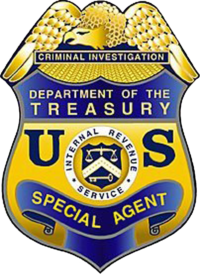Originally published on Forbes.com Apr 12th, 2013
Ever send an e-mail to your CPA asking him if he wants to have lunch at your favorite restaurant at a particular time and get a response like this:
Sure.
In accordance with applicable professional regulations, please understand that, unless expressly stated otherwise, any written advice contained in, forwarded with, or attached to this e-mail is not intended or written by __________to be used, and cannot be used, by any person for the purpose of avoiding any penalties that may be imposed under the Internal Revenue Code.
You can blame Circular 230 for that. Circular 230 is the IRS document that governs practice before the IRS. It is very bad to run afoul of it. Realistically, there probably is not much chance that you would argue that because your CPA was willing to have lunch with you, you should be able to avoid penalties, but you can never be too careful, so something like that is probably embedded in 90% of the emails that go out of CPA and law firms.
Some practitioners violate Circular 230 in much more spectacular ways. Given the imminence of the due date the IRS has chosen to highlight one of them in this announcement. Here are some of the highlights:
The Internal Revenue Service today announced that its Office of Professional Responsibility (OPR) obtained the disbarment of Certified Public Accountant Anthony A. Tiongson for charging unconscionable fees, giving irresponsible advice to clients and making false statements to federal and state authorities, among other things.
Other than that Mrs. Lincoln, how did you enjoy the play ?
In a Final Agency Decision, the Administrative Judge (ALJ) disbarred Tiongson on March 1. The ALJ found that Tiongson’s advice to clients to use Form 2555 to treat California earned income as foreign source income on at least fifty-two tax returns, constituted disreputable conduct under Circular 230, and his failure to research the legitimacy of the filing position specifically violated the Circular’s due diligence standards.
So if I decide to try that with Massachusetts, I better do some research first. My guess is that it won’t work on the East Coast either.
The ALJ also found that Tiongson violated Circular 230 by engaging in a pattern of delaying IRS examination and collection actions by repeatedly raising numerous frivolous arguments, long-rejected by the IRS and by case law. Tiongson’s litigation threats against IRS employees, as part of client settlement proposals, were also determined to be violations.
Gee, I never thought of threatening to sue agents as part of my audit strategy. It doesn’t strike me as a good idea, anyway.
I always knew there must have been something important about Treasury Circular 230 besides eating bandwidth by padding millions of e-mails. Now we really see it in action.
You can follow me on twitter @peterreillycpa.































































































